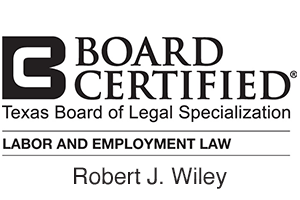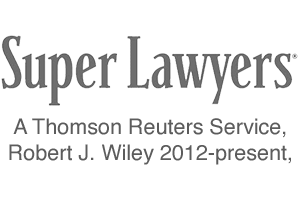in Austin, Texas
Sexual Assault
Texas Lawyers for Victims of Workplace Harassment
Everyone should be able to work in a place free from the threat of sexual assault. Unfortunately, sometimes sexual assault in the workplace does occur. An employer may be held liable for sexual assault as a form of sexual harassment. If you suffered from a sexual assault in your workplace, you should consult an experienced sexual harassment attorney. At Austin Employment Lawyers, P.C., our Austin sexual assault lawyers can evaluate the facts of your particular situation and represent you if needed.
Claims Based on Sexual Assault
Both Title VII of the Civil Rights Act of 1964 and the Texas Labor Code prohibit sex discrimination in the workplace. These laws cover employers with 15 or more employees. It is illegal for a covered Texas employer to discriminate against an employee based on their sex with regard to any term or condition of employment. Employers are also not allowed to retaliate against someone who files a claim based on sexual harassment.
Title VII is enforced by the Equal Employment Opportunity Commission (EEOC). The EEOC regulation 29 C.F.R. § 1604.11 states that unwanted physical touching, requests for sexual favors, and other unwelcome sexual conduct are considered sexual harassment if an employee’s submission to this conduct or rejection of it affects their employment status or is made a condition of employment, or if the conduct or speech creates a hostile work environment. Quid pro quo harassment can only be perpetrated by someone with supervisorial authority over the victim, such as a manager.
A perpetrator of hostile workplace harassment may be a supervisor, manager, CEO, customer, client, or coworker, and the person may be of either sex. Generally, to create a hostile work environment, harassment must be either severe or frequent. The details of the sexual assault or assaults may affect whether you can claim hostile work environment harassment. A sexual assault attorney at our Austin firm can help workers determine whether they have a claim.
In a Texas Supreme Court ruling from 2017, a restaurant employee claimed that she had been sexually assaulted by her supervisor. The restaurant investigated but was not able to substantiate her claim, so it did not terminate the supervisor or transfer him. She quit and sued, claiming several common law causes of action, including sexual assault, negligence, and gross negligence, but she did not put forward a sexual harassment claim. The restaurant successfully argued at the lower and intermediate appellate levels that her claims were preempted by the Texas Labor Code.
However, the Texas Supreme Court explained that whether a sexual assault claim should proceed under common law or as a form of sexual harassment depends on its “true nature.” In the 2017 case, the claim was based on a single incident, and the employee did not claim that there was any pattern of offensive behavior that had fostered a hostile work environment. The Texas Supreme Court’s holding requires courts to determine the crux of the claim. If you are challenging an employment practice that is considered discriminatory, related common law claims may be preempted. However, if you were assaulted one time, these claims may not be preempted. It is important to retain an attorney who understands the distinction and how a court is likely to see your case.
If you are sexually assaulted, you should report it to your employer and to a law enforcement agency. If no grievance procedure is specified, you should let HR know what happened and memorialize the notice that you gave in writing at around the same time. An employer can be held responsible for sexual harassment and assault by a coworker, customer, or client if an employer knew or should have known about the harassment and could have taken steps to correct the situation.
An employer can be held responsible for a supervisor or manager’s sexual assault as a form of harassment even if it did not know about it. In order to avoid liability for hostile work environment harassment, the employer can try to show that it took reasonable care to prevent or address the hostile work environment, but the victim employee did not take advantage of the corrective measures. Accordingly, it is important under Title VII that you give notice and cooperate with any investigation into the sexual assault by your employer.
Hire an Experienced Sexual Assault Lawyer in Austin or Beyond
If you face sexual assault on the job in Texas, you should consult an employment discrimination attorney. This is a complex area of law, and it is important to retain knowledgeable legal counsel to protect your rights. Austin Employment Lawyers, P.C. represents employees in Austin, Georgetown, Round Rock, Cedar Park, Pflugerville, Leander, Del Valle, Kyle, San Marcos, San Antonio, New Braunfels, and Fredericksburg, among other cities. Call us at (512) 271-5527 or use our online form to schedule an appointment with an Austin sexual assault attorney.







